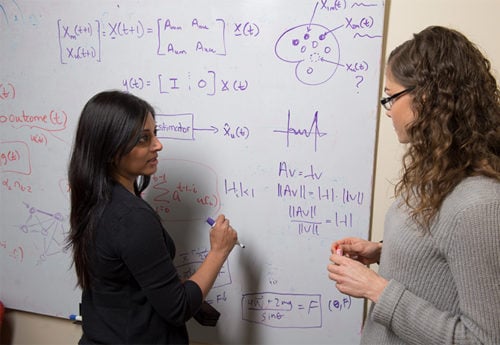Computational Medicine (CM) is an emerging discipline devoted to the development of quantitative approaches for understanding the mechanisms, diagnosis and treatment of human disease through applications of mathematics, engineering and computational science. The core approach of CM is to develop computational models of the molecular biology, physiology, and anatomy of disease, and apply these models to improve patient care. CM approaches can provide insight into and across many areas of biology, including genetics, genomics, molecular networks, cellular and tissue physiology, organ systems, and whole body pharmacology. At the Institute for Computational Medicine (ICM), the “birthplace” of CM, research focuses on four key areas: Computational Molecular Medicine, Computational Physiological Medicine, Computational Anatomy, and Computational Healthcare.
Below, you will find a suggested list of courses to help you in your course planning. Your academic interests determine the remaining courses (focus area electives). You will meet with the faculty lead of your chosen focus area to determine your course plan. The program administrator will provide additional advisement and course approval. Please note that all listed courses are suggested and may not always be offered. Course offerings are subject to change from semester-to-semester.

